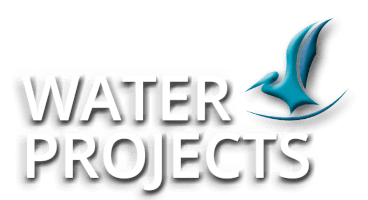South West Water Event Duration Monitoring Programme (2024)
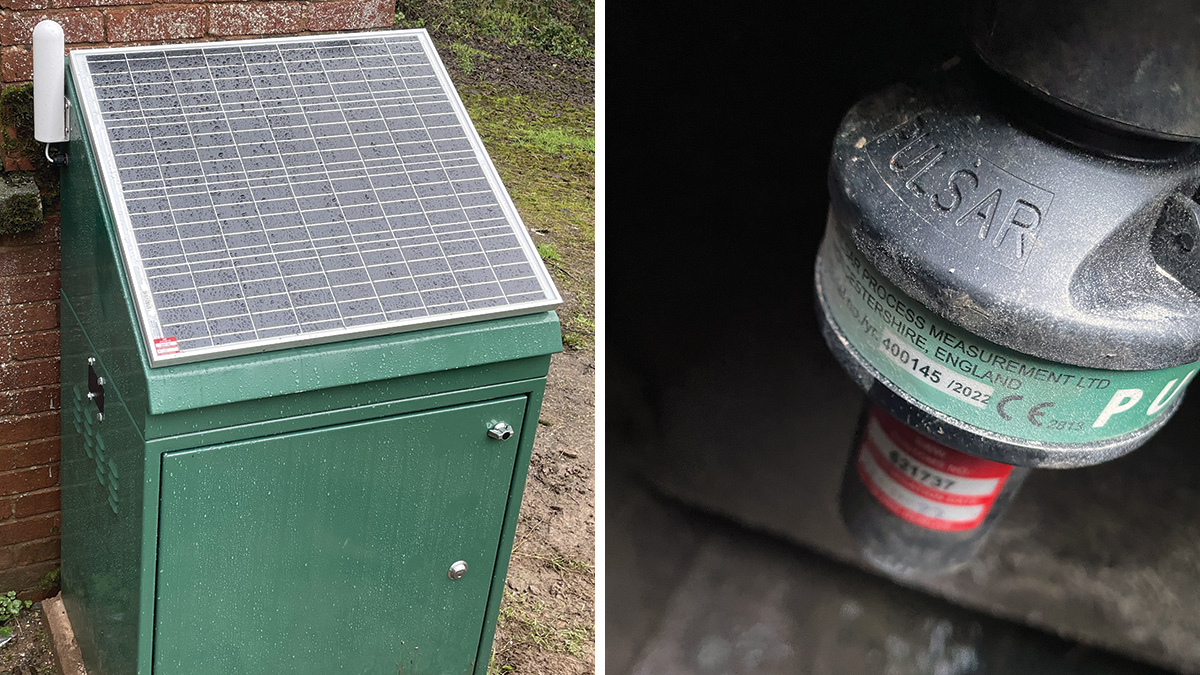
(left) New EDM solar powered control kiosk and (right) new ultrasonic head in existing sewer - Courtesy of Galliford Try
The Event Duration Monitoring (EDM) Programme of works consisted of 86 sites across Devon and Cornwall, where South West Water had a requirement to install monitoring equipment on existing consented spill overflow points. This is part of a continuous improvement of South West Water’s CSO monitoring systems, and these works will enable the instantaneous monitoring of spill events across the catchment, ensuring the client has visibility of any spills that occur and the duration of the spill event.
The programme
Galliford Try firstly had to survey the existing assets to ascertain the requirements for each spill point, and to verify the method of both power and communications required for each location. Project scopes were then agreed with South West Water and any third-party stakeholders including the National Grid, British Telecom and residents. Once agreements were finalised and any wayleaves required obtained through the client’s Estates team, a programme was produced for the delivery of the works.
The original programme consisted of 14 months of continuous work, however the client then requested this was reduced to five months due to the importance of the scheme. The team managed the works for both the in-house installation teams and coordinated the interface with all the third-party organisations to ensure the scheme was completed to the accelerated programme.
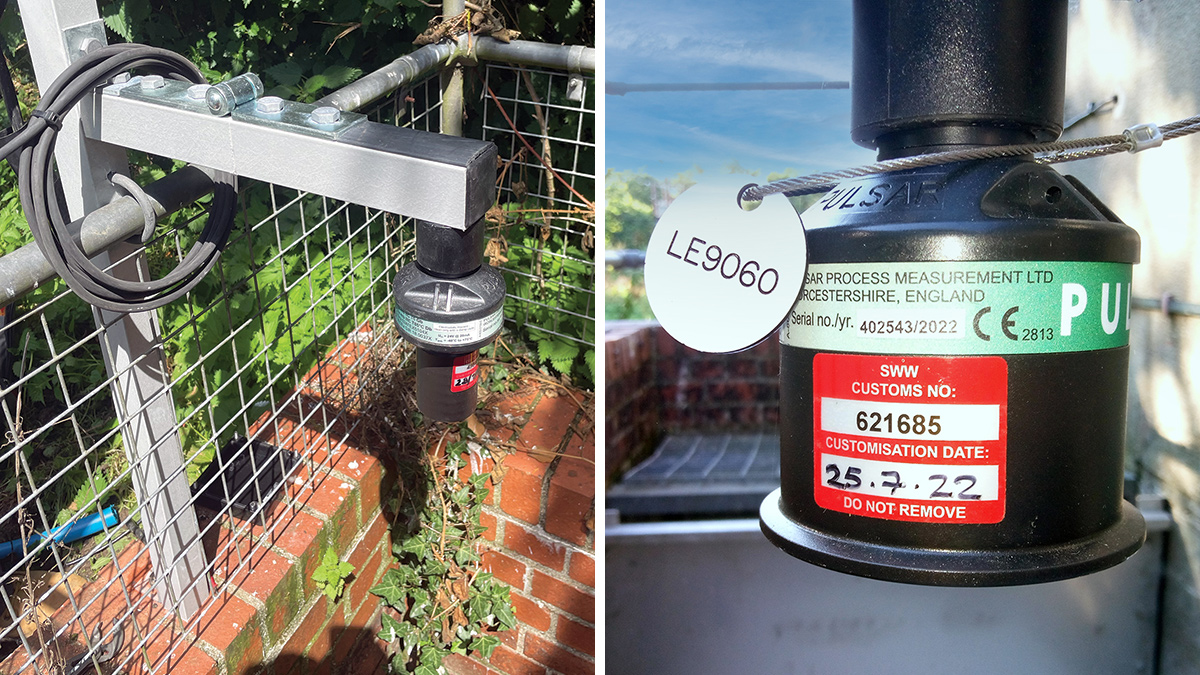
(left) New ultrasonic head in existing tank and (right) new ultrasonic head at existing spill point – Courtesy of Galliford Try
Accelerated programme
To achieve the accelerated programme, the Galliford Try team had to come up with innovative solutions to reduce time throughout the programme of work. One of the main innovations implemented was the use of solar powered instrumentation on sites that would otherwise have required, costly, time-consuming, complex mains power installations. This model was specifically designed and built for the bespoke project, however since the project completion the client is now investigating the use of this specification across a wider range of applications.
The use of standard designs and Galliford Try’s off-site build capabilities were also incorporated into the delivery of the scheme to further reduce installation times on site, the use of off-site build provided a 20% reduction in on site working. This assisted Galliford Try in reducing the overall carbon footprint of their works, minimised wastage and enabled their site teams to complete the installation as efficiently as possible.
EDM Programme: Supply chain – key participants
- Designer & project delivery: Galliford Try
- Groundworks: R&R Civil Engineering Ltd
- Kiosks: Quinshield Ltd
- Instrumentation: Pulsar Measurement
- Solar kiosks: GT Water Technologies
Preparation, planning & innovation
The project was completed nine months ahead of the programme and has provided South West Water with its highest level of spill visibility. The project was completed with zero accidents and incidents and had a high level of public stakeholder interface supported by Galliford Try’s site operational staff and Customer Liaison team.
The project incorporated the use of solar powered technology on some of the sites where providing a new supply would affect completion dates; and by minimising the requirement for permanent power supplies, this reduced the disruption to the residents, minimised cost to the scheme and enabled the project to be completed within the accelerated timescales.
The team used off-site construction to also aid with the accelerated programme, all the instrument kiosks were fitted out prior to delivery, the team also used items from its SAFE (Safe Assembly, Factory Environment) range including instrument junction boxes and prefabricated bracketry to reduce installation time whilst maintaining a high level of quality and consistency across all sites.
Community liaison
Throughout the duration of works Galliford Try’s project and site team in collaboration with their in-house Customer Liaison Officer ensured that affected local residents were proactively informed of the works being undertaken, this allowed Galliford Try to create positive interface with the communities affected by their works. This included letter drops and face to face communication to ensure Galliford Try’s works did not have a negative impact on the people living in and around the work sites.
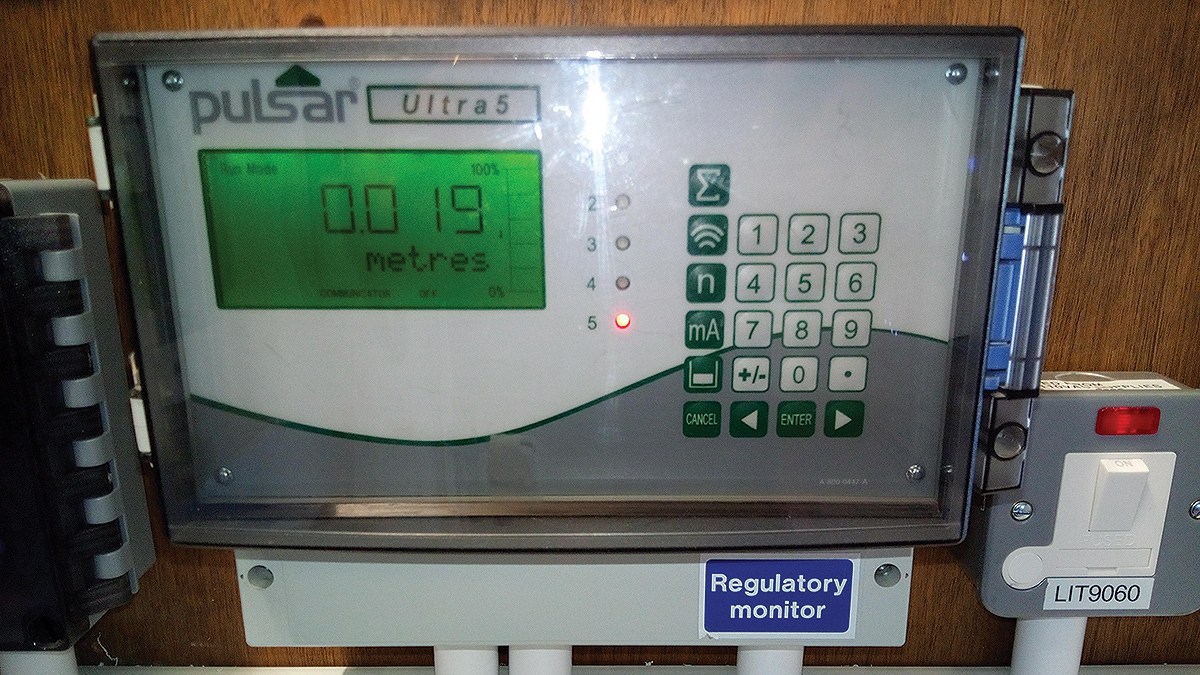
New level controller – Courtesy of Galliford Try
Accolades and feedback
SWW’s Performance Manager said:
“Due to the dedication of Galliford Try the additional EDM installations were completed by the very tight deadline including the delivery of the supplementary documentation. As a result of their hard work, this allowed these new installations to be included for the first time in the EDM regulatory return for 2022 giving SWW 99.6% coverage for the first time”.
SWW’s Programme Manager for Devon Wastewater Projects said:
“On behalf of SWW, Galliford Try were tasked as a trusted partner with installing and commissioning 86 Event Duration Monitoring stations throughout our area of coverage. These stations are vital to ensuring SWW have full visibility for spill events from our network of Consented Sewer Overflows. Due to the importance of the scheme’s completion, SWW requested that GT completed the project with 5 months, although the original target was set at 14 months.
Their commitment, skill and knowledge along with their professionalism and dedication ensured the project was completed within the accelerated programme dates. We found them extremely responsive, innovative and accurate throughout the project. And look forward to maintaining this approach across our portfolio of capital schemes throughout the remainder of the AMP7 programme of works’.
Awards
Galliford Try received a Bronze “Environmental Best Practise” Green Apple award for this scheme and were presented with it at the Houses of Parliament in November 2023. The team also received a South West Water Pure award in innovation for the development of the solar powered instrument kiosk that was used as part of the scheme.
The project was completed within the 5-month accelerated programme and was delivered to budget. The overall cost of the scheme to South West Water was £868,108 this was funded as part of SWW’s Green Recovery programme of works.
Due to the success of the project, SWW are now reviewing additional spill points that require the monitoring to be installed, some of which will benefit from the standard designs, off site build and solar innovations implemented as part of the project.
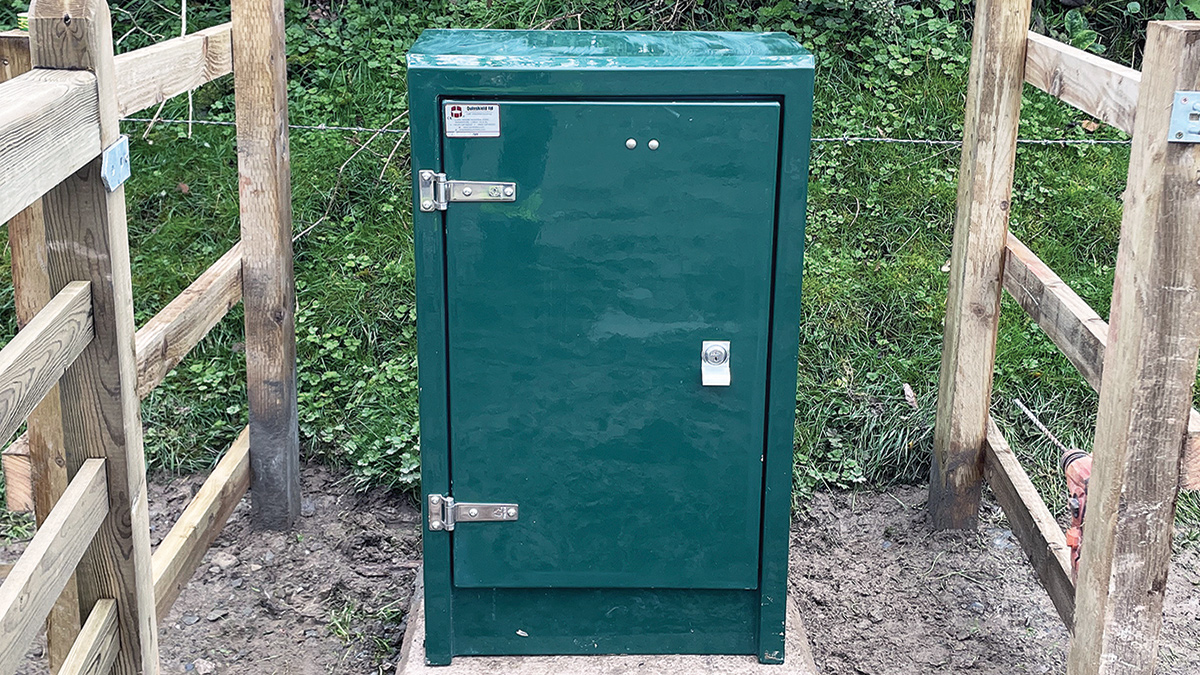
New roadside EDM control kiosk - Courtesy of Galliford Try
